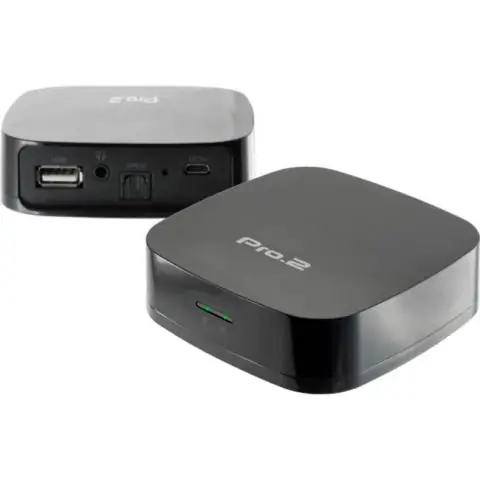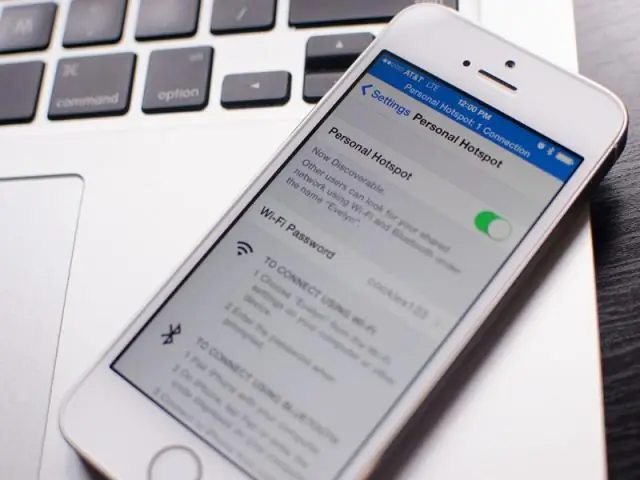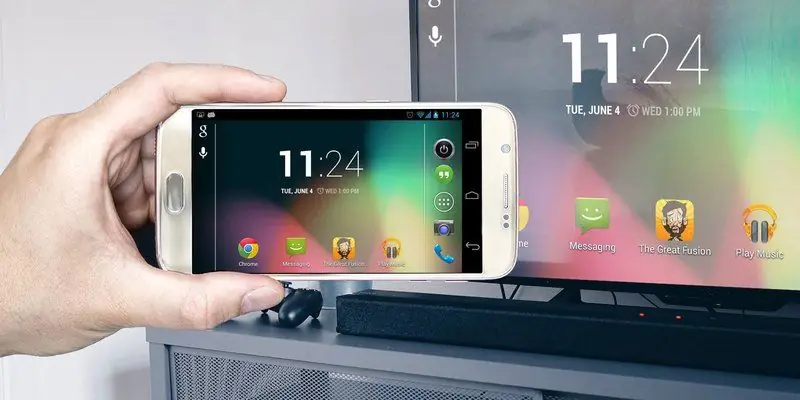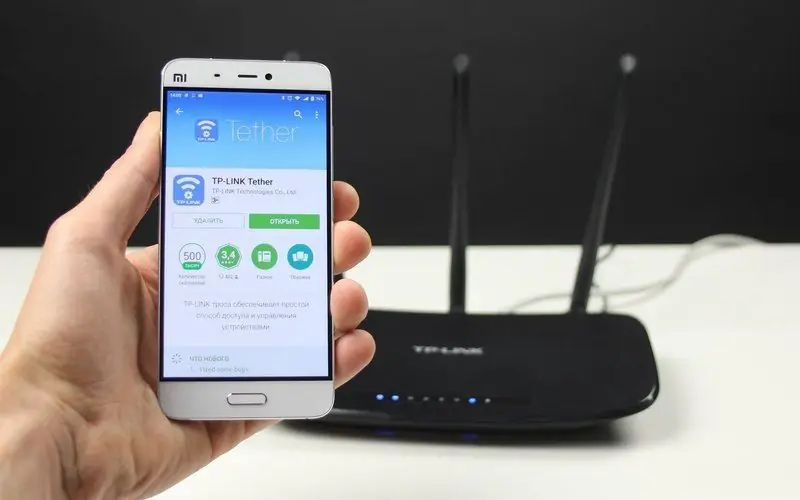
Table of contents:
- Author Bailey Albertson albertson@usefultipsdiy.com.
- Public 2023-12-17 12:53.
- Last modified 2025-06-01 07:32.
The fastest way to connect a TV to a computer: using Wi-Fi

Connecting a TV to a computer is not unusual today. The opportunity to watch movies or photographs on a large TV screen will be pleasant to everyone. With the development of wireless communication, connecting a TV to a computer became available using Wi-Fi technology. Let's consider this option in more detail.
Content
- 1 Prerequisites for connecting a TV via Wi-Fi
-
2 Instructions for connecting to a computer via Wi-Fi TV with support for Smart TV
- 2.1 Connecting via Wi-Fi router
- 2.2 Direct connection of the TV to the computer via Wi-Fi
-
3 Wi-Fi connection to a TV computer without Smart TV
- 3.1 Video: Ways to connect a TV to a computer via Wi-Fi
-
3.2 Broadcasting an image from a computer screen to a TV
3.2.1 Video: Displaying images from computer to TV via Wi-Fi
Prerequisites for connecting a TV via Wi-Fi
If you want to connect your TV to your computer via Wi-Fi, then you first need to determine if you have such an option. Connecting a TV via Wi-Fi is possible if:
- the TV has a Smart TV function with a built-in Wi-Fi adapter - then it will be the easiest to connect and you will not need to buy additional equipment;
- the TV has a USB connector to which you can connect a Wi-Fi module - in this case, you will need to buy a suitable module, while the type of module depends on the TV manufacturer;
- you can connect the device locally without Smart TV - in this case, the TV is connected directly to the computer via the local network;
- Another connection option without Smart TV is possible through a Smart set-top box - it will provide your TV with functionality similar to Smart TV.
Of course, your computer will also need a Wi-Fi module to provide a connection from its side. If your computer does not have a built-in Wi-Fi module, you will need an external adapter. If you decide to buy an adapter, you should estimate its bandwidth in advance: for the device to work correctly, it must be large enough (100-150 Mb / s). Otherwise, the image on the TV screen will twitch and slow down, which will greatly spoil the experience of watching the video.
How do you know if your TV has Smart TV? There are several ways:
- study the main characteristics of the device: they are written on the box, and the presence or absence of the Smart TV option will be indicated there;
-
take a close look at the remote control of the device: usually there is a Smart key to access the main menu; on Philips TVs, it corresponds to a key with a house icon;

Smart button on the TV remote control If the remote has a Smart button, then your TV supports the Smart TV function
- check the information on the Internet by typing the name of the TV model into the search box and examining its characteristics.
Instructions for connecting to a computer via Wi-Fi TV with support for Smart TV
There are two main connection methods: via a Wi-Fi router or direct connection of the TV to a computer without a router.
Connecting via Wi-Fi router
The first step to connect your TV to your computer via a router is to set up your TV. Do the following:
-
Turn on the router and in its settings set the DHCP mode (automatic distribution of network settings). This will allow the TV to receive the required connection parameters immediately after connecting.

Enabling DHCP mode on the router Turn on DHCP mode in the router settings
- Set a password for connecting to the local network - the further connection will be made to this network.
- Open the TV settings using the remote control.
-
Go to the "Network" section and select "Network Connection".

Section "Network" in the TV settings Go to the "Network connection" section in the "Network" tab of the TV settings
-
After receiving a notification from your Smart TV with information about possible types of connection, click the "Set up connection" button.

Network connection type notification Click on the "Configure connection" button
- Select your wireless network to connect to the router.
-
Enter the password you set earlier and confirm the entry.

Entering a password when connecting Enter the password set on the router
-
A notification appears that the network was successfully connected. Click the Finish button.

Confirming Wi-Fi Connection Click the "Finish" button after the connection is complete
Now that the TV is set up, you can proceed to install the media server on your computer. It will be needed to exchange data between devices. There are many special programs for creating such servers - we will analyze the process using the example of Plex Media Server:
- Download and install this program, and then open its web interface - it will configure the parameters necessary for operation.
-
Go to DLNA section and set the marker to Enable the DLNA server, then save the changes. This will enable further use of the program.

Enable DLNA Server Check the box Enable the DLNA server
- Next, you need to configure the types of content that you are going to use: movies, music or photos. Click on the plus to add a new category.
-
Select the section you need, for example, "Movies", to add a collection (folder with files) to the program.

Selecting a media type Select the type of content you want to output to your TV
-
Enter a name for the collection and click the Next button.

Entering a collection name Enter a name of the collection convenient for you and click the "Next" button
- Go to the "Folders" item and click on the "Add folder" button. Specify the path to the movie directory on your computer. After a short time, the films will be processed and will appear in your collection.
All that remains is to access the created server from the TV. To do this, do the following:
- Go to the "Media" section. Depending on your TV model, you may need to select External Sources.
- Select the server you connected as the media source.
- Specify the files you want to access. They depend on the collection type you created. For example, Video.
- Select a collection, in our case it is the "Movies" folder.
- Select a movie from the list and start it. After the download is complete, you can start watching.
Direct connection of the TV to the computer via Wi-Fi
If you connect directly without a router, you can use the same file management programs, but you need a laptop to connect to the TV, not a desktop computer. The point is that the laptop's Wi-Fi adapter can be used as an access point. The most convenient way to create it is through the command line. This is done like this:
-
Open a command line console. To do this, you can type cmd in the search bar or enter the same command in the Run panel.

Opening the command line console Select "Command Prompt" from the Start Menu
-
After opening the command line, enter the command netsh wlan set hostednetwork mode = allow ssid = My_virtual_WiFi key = 12345678 keyUsage = persistent into it and confirm the entry by pressing Enter.

Starting the server on the command line Enter the command and execute it by pressing the Enter key
-
Then start the network with netsh wlan start hostednetwork. You will have to enter it every time you turn on the device.

Enabling networking at the command line Enter the command to start the network and confirm the entry
- Further actions are similar to those described in the previous instruction: you need to connect to the created network through the TV, choosing it instead of the router, then create a server in the Plex Media Server program and go to it from your TV.
It will be easier to create such a local network if your TV supports Wi-Fi Direct technology. This can be done without using third-party programs - just create a folder on your computer with the relevant content and share it. To do this, do the following:
- Select the folder that you want to share from the TV.
-
Right-clicking, open the context menu of the folder and enter the "Properties" section.

Folder context menu Open the "Properties" section in the context menu
-
In the Sharing tab, select Sharing and share the folder.

Configuring Content Folder Sharing Open the "Sharing" section in the folder properties and make the necessary settings
Wi-Fi connection to a TV computer without Smart TV
If you have a regular TV without Smart TV function, you can connect it to your computer using WiDi / Miracast technology. This means that you can stream your computer screen to your TV. This solution has its drawbacks:
- the technology is quite resource-demanding: you need a fairly powerful computer;
- this feature is not available for all TVs: if your TV does not support the WiDi / Miracast option, then you will have to purchase a special adapter that connects to the TV via the HDMI port;
- there is an insignificant delay in control: actions on the computer will be transmitted to the TV screen not instantly, but with a slight time shift.
The advantage is the ability to display images on the TV from the browser when browsing sites.
For such a connection and setting up a broadcast from the screen, you will need a special Intel Wireless Display program. Follow these steps:
- Download and install the Intel Wireless Display software. It has not been available on the official website for several years, but it can still be found on the Internet, for example, here.
-
Make sure the Miracast / Intel WiDi function is activated in your TV menu under the network settings.

Enabling Miracast / Intel WiDi Function Make sure Miracast / Intel WiDi is enabled on your TV
- After installing the program, you can search and view information on the laptop, and the TV will connect to it automatically.
- As soon as the TV and computer are connected to each other, it will be possible to view the content.
Video: ways to connect a TV to a computer via Wi-Fi
Broadcasting an image from a computer screen to a TV
If you have established a WiDi connection between your TV and your computer, you can use it as a second monitor. To do this, just do the following:
-
Open the display settings on your computer (Win + P by default) and click on the line "Connect to a wireless display".

Projecting an Image from a Computer to a TV Select "Connect to a wireless display" in the settings for displaying images on a computer
-
Select your TV from the list of displays. The image will be displayed on it.

Selecting a Device for Projection Select your TV and wait for it to connect
- In some cases, the TV will ask you to confirm the connection request.
Video: output images from a computer to a TV via Wi-Fi
There are different ways to connect a TV to Wi-Fi, but many of them require certain device functionality or additional equipment. Having studied all the methods, you can choose the best option for your TV, regardless of whether it has a Smart TV function.
Recommended:
How To Connect The Music Center To A TV, Computer, Laptop And Other Devices + Video

How to connect the music center to a computer, laptop, TV. What are the cables and connectors, how to connect the wires correctly
How To Connect An IPhone, IPad To A TV Via Wi-Fi, USB

How to connect Apple appliances to a TV. Use of official adapters and third party products. Possible connection errors
How To Connect Laptop To TV Via WiFi

What gives a wireless connection of a laptop to a TV. How to connect: DLNA system, Miracast, adapters and third-party software
How To Connect A Phone Or Tablet To A TV Via WiFi

Several ways to connect your phone or tablet to TV. How to run a file from a phone on a TV or start controlling a TV using a phone (like a remote control)
Why The Phone Does Not Connect To WiFi And What To Do About It: Detailed Instructions For Solving The Problem

The reasons why the smartphone cannot connect to the wireless Internet network. Analysis and solution of all problems with photo and video instructions
